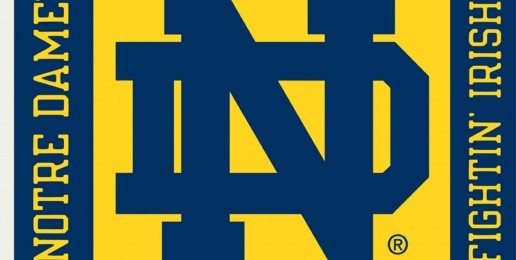
I’m covering two controversies in today’s column.
I’ll begin with the major controversy – scandal is probably a better term – involving the University of Notre Dame’s invitation to President Obama to deliver the commencement address on May 17 (click here for the story).
Catholic Web sites and blogs have been buzzing about this development in recent days, with many orthodox Catholics, including ND alumni, expressing their outrage.
Joe Scheidler, national director of the Pro-Life Action League and an alumnus of ND, said in a press release:
‘Over the first two months of his administration, Barack Obama has established himself as the most pro-abortion president in U.S. history. My alma mater should not be providing a platform for this president.
‘Starting from his first week in office, President Obama has enacted a string of executive orders, appointments and policy decisions that contradict Catholic teaching on the sanctity of life – a teaching that Notre Dame is supposed to uphold.
‘[ND president Father John Jenkins] cannot expect pro-life Catholics to stand back and allow the most pro-abortion president in U.S. history to make a mockery of Notre Dame’s Catholic identity.’
Jim Finnegan, another veteran pro-life activist and alumnus of ND, had this to say:
‘The news was as depressing to me as possible. With all the lack of understanding and concern for the feelings of so many graduates and friends of ND by its leadership over the past few years, this seems to top the list. A kind of ‘stick it in your eye’ decision – about as callous and cold as it gets.
‘The school had to know how this would be taken by not only those who love Our Lady’s school, but also those who are haters of our Catholic faith.
‘Truthfully, this one is hard to believe. With six members of the C.S.C. family and six lay members making up the trustees of the university, one would think they would have stopped this from happening. Father John Jenkins is one of the 12 trustees, so you know it had to go through him. Ironically, one of the stated responsibilities of the trustees is ‘to protect and nurture the true teachings of the Catholic faith against any attacks against these principals.’
‘Obviously those who love ND will respond. I have heard from many requesting, what do we do? Many good people will, in Joe Scheidler’s often-stated remark, ‘respond in a loving manner.”
Click here to find out how you can express your concerns to the university.
There is also controversy – on a much smaller scale, one could say – in the Diocese of Joliet, Ill. A reader alerted me to a diocesan-sponsoredconference for divorced and widowed Catholics, featuring Father Richard Gilbert, to be held March 28.
The thing is, Father Gilbert is an Anglican priest who belongs to the Evangelical Anglican Church in America, a church “that includes and affirms the identities and experiences of all God’s people. We are people of diverse backgrounds, identities and orientations. We are catholic [sic] and protestant [sic], female and male. We are a welcome home for those who have been marginalized by the church [sic].”
And, according to this essay, the EACA “provides a means by which and an ecclesial body in which sincere gay men, lesbians and bisexual persons, amonst others historically excluded, may answer Christ’s call to the Church either as lay faithful or within the ministerial priesthood, in adherance [sic] to Christ’s intention that his Church make its foundation upon the twin principles of mutuality and inclusivity.”
Now I ask: Even though Father Gilbert may be considered an “expert” in his field, is it really appropriate to have a non-Catholic clergyman who belongs to a liberal Protestant sect conducting a conference for divorced and widowed Catholics? Couldn’t the diocese find a (non-modernist) Catholic priest to conduct the conference?
What do you think about it, dear readers?





























